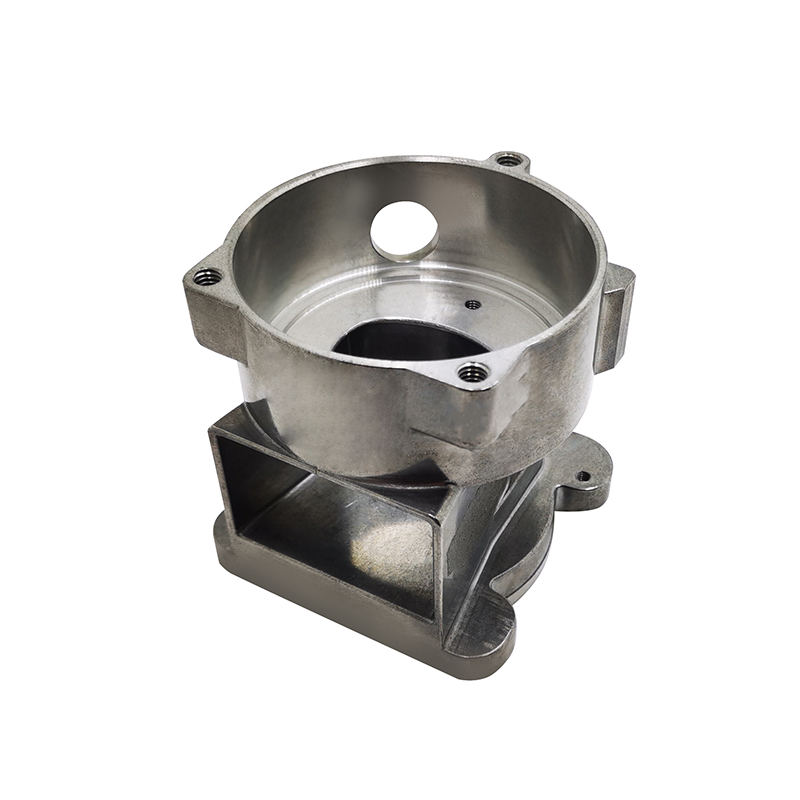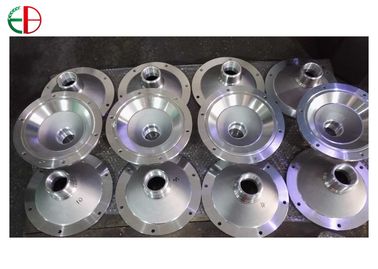How aluminum casting contributes to sustainable manufacturing
How Light Weight Aluminum Foundries Contribute to Various Industries: A Detailed Review
Aluminum shops work as necessary distributors across numerous industries, consisting of automotive, aerospace, building, and electronics. They generate components that are not just lightweight yet also sturdy, enhancing the performance of various products. With advanced casting methods and a dedication to sustainability, these foundries are adjusting to satisfy advancing market needs. As they introduce, the impact of aluminum castings on different applications raises vital inquiries concerning the future of production. What lies ahead for this vital market?
The Role of Aluminum Foundries in the Automotive Market
As the vehicle sector progressively accepts lightweight materials to boost fuel performance and performance, light weight aluminum foundries play a crucial function in this advancement. These facilities focus on the manufacturing of aluminum spreadings, which are necessary parts in modern-day lorries. By providing high-strength, lightweight components, light weight aluminum factories enable suppliers to decrease the general weight of automobiles, inevitably bring about enhanced gas economic climate and reduced discharges.
Aluminum's resistance to corrosion further improves automobile durability, making it an appealing choice for car manufacturers. Factories utilize innovative strategies such as die spreading and sand casting to produce detailed and accurate components, making sure that they fulfill stringent sector standards. Furthermore, the capacity to reuse aluminum efficiently adds to an extra sustainable manufacturing process. As the vehicle field remains to introduce, light weight aluminum factories will certainly stay pivotal in delivering the materials needed for the future generation of vehicles, sustaining both performance and environmental objectives.

Aerospace Applications of Light Weight Aluminum Castings
Aluminum castings are essential to the aerospace industry, providing a mix of lightweight strength and toughness that is critical for airplane performance. These castings are made use of in numerous parts, such as engine parts, structural frames, and touchdown equipment, where weight reduction is essential for gas efficiency and overall safety. The versatility of aluminum permits complicated geometries that enhance aerodynamic effectiveness while maintaining architectural integrity.
Advancements in casting modern technologies have actually boosted the accuracy and surface area coating of light weight aluminum parts, decreasing the need for substantial post-processing. This effectiveness not just increases manufacturing timelines but also lowers expenses, making aluminum an attractive option for manufacturers. The corrosion resistance of light weight aluminum warranties durability and reliability in rough operating environments, further establishing its role in aerospace applications. As the industry evolves, aluminum castings continue to be an important material, driving innovation and supporting the advancement of next-generation airplane.
Building Sector Innovations With Light Weight Aluminum
The construction sector has significantly embraced light weight aluminum due to its light-weight residential or commercial properties and flexibility, paralleling its successful applications in aerospace. Technologies in light weight aluminum layout have resulted in more powerful, much more effective structures, allowing contractors and designers to discover new opportunities. The product's resistance to deterioration and low upkeep needs make it specifically appealing for both business and property jobs.
Aluminum's flexibility facilitates the creation of complex styles, enabling aesthetic improvements that were previously tough with traditional materials. Prefabrication techniques have likewise developed, making use of light weight aluminum to reduce building and construction time and expenses significantly. Furthermore, the power performance of light weight aluminum systems-- such as home window frames and roofing-- adds to lasting building techniques, straightening with modern environmental standards. As the construction industry continues to accept these developments, aluminum's function is anticipated to broaden, driving more technology and adding to the advancement of resistant navigate here frameworks.
Electronics and the Need for Lightweight Aluminum Components
With the quick improvement of innovation, the need for light-weight light weight aluminum parts in the electronics market has risen. As gadgets become more portable and portable, suppliers seek materials that offer both toughness and weight decrease. Aluminum, with its exceptional strength-to-weight proportion, has actually become a recommended option for parts such as housings, heat sinks, and architectural assistances.
Using light weight aluminum not only improves product performance yet additionally adds to energy performance, as lighter devices require less power during operation. Furthermore, aluminum's excellent conductivity makes it suitable for electronic applications, making sure effective heat dissipation and decreasing the risk of overheating.
As customer preferences shift in the direction of streamlined and light-weight gizmos, aluminum foundries play an important role in meeting the advancing needs of the electronic devices market (Aluminum Foundry). Their ability to create accurate and high-grade aluminum parts sustains innovation, making it possible for makers to press the boundaries of layout and performance
Lasting Practices in Light Weight Aluminum Foundries
As the electronic devices sector significantly focuses on sustainability, light weight aluminum foundries are adjusting their techniques to straighten with these ecological goals. Numerous factories are implementing recycling programs that redeem aluminum scrap, considerably lowering the requirement for resources and lessening waste. By utilizing energy-efficient modern technologies, these centers are decreasing their carbon footprint; as an example, utilizing electric heaters instead of standard gas-fired ones can lead to considerable energy cost savings.
Additionally, aluminum factories are investing in water conservation steps, such as closed-loop systems that reuse water utilized in cooling processes. These methods not only reduced water usage however also reduce the ecological impact linked with wastewater discharge. Furthermore, numerous foundries are checking out sustainable energy resources, such as solar and wind power, to satisfy their energy needs sustainably. Via these campaigns, light weight aluminum factories exhibit a commitment find out to environmental stewardship while remaining to meet the demands of the electronic devices market.
Future Patterns in Light Weight Aluminum Foundry Technologies
Emerging innovations are poised to change aluminum shops, enhancing performance and product high quality while progressing sustainability efforts. Technologies such as expert system and machine discovering are expected to enhance production processes by forecasting equipment failings and boosting source allotment. The combination of advanced robotics will streamline operations, lowering labor costs and reducing human error.
Additive production, or 3D printing, is also gaining traction, enabling the production of intricate geometries that were previously unattainable with standard techniques. This shift could cause significant material savings and decreased waste. Furthermore, clever foundries making use of IoT (Net of Things) modern technologies will make it possible for real-time tracking and data analysis, promoting proactive decision-making.
The adoption of cleaner melting technologies and reusing techniques will additionally reduce the ecological impact of aluminum shops, making them extra lasting. Collectively, these patterns signal a future where light weight aluminum factories can operate with greater effectiveness and obligation.
Often Asked Inquiries
What Are the Ecological Influences of Aluminum Foundries?

Exactly How Do Foundries Guarantee Top Quality Control in Light Weight Aluminum Spreading?
Factories ensure high quality control in aluminum spreading by carrying out rigorous evaluation processes, making use of innovative modern technology, performing normal product testing, and adhering to market criteria, consequently preserving consistency and reliability in their ended up items. Aluminum Casting Company.
What Is the Ordinary Life-span of Light Weight Aluminum Cast Parts?
The ordinary life-span of light weight aluminum cast parts normally ranges from 10 to 50 years, relying on variables such as environmental conditions, use, and upkeep. Proper care can substantially enhance their resilience and performance with time.
How Are Light Weight Aluminum Alloys Selected for Certain Applications?
Aluminum alloys are picked based upon variables such as toughness, deterioration resistance, weight, and thermal conductivity. Designers evaluate the particular needs of applications to establish one of the most suitable alloy for ideal efficiency and durability.
What Are the Security Laws for Light Weight Aluminum Factory Workers?
Safety and security regulations for aluminum factory workers include personal protective tools mandates, ventilation needs, exposure restrictions to hazardous products, and protocols for browse around this site managing molten metal. Conformity assurances worker safety and decreases health and wellness dangers related to factory operations.
As the automobile industry significantly accepts lightweight materials to boost gas effectiveness and performance, aluminum foundries play a crucial function in this advancement. As consumer preferences change in the direction of streamlined and light-weight gadgets, aluminum shops play a necessary function in meeting the evolving demands of the electronics industry. As the electronics market significantly prioritizes sustainability, aluminum shops are adjusting their methods to align with these environmental objectives. Many shops are executing reusing programs that redeem aluminum scrap, significantly reducing the requirement for raw products and reducing waste. Safety guidelines for aluminum factory workers consist of personal protective devices mandates, ventilation needs, direct exposure restrictions to harmful products, and protocols for taking care of liquified metal.